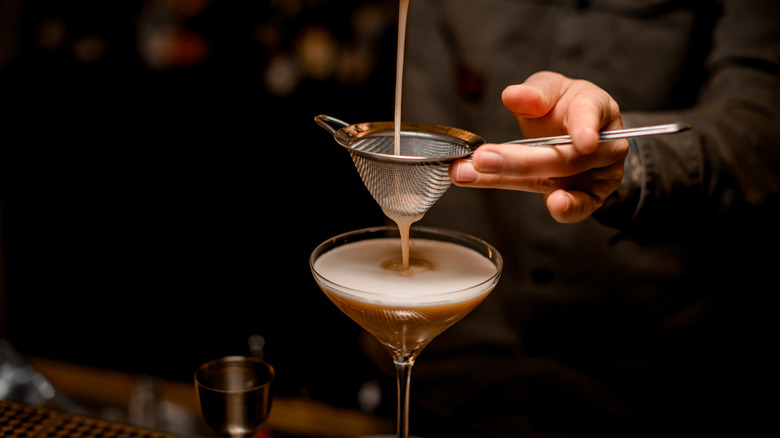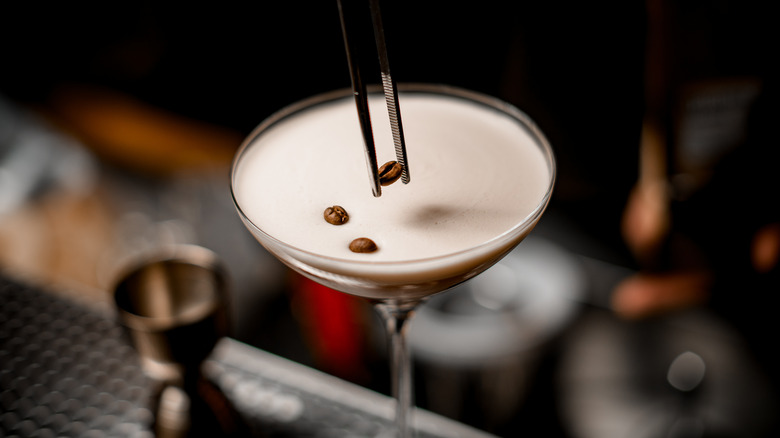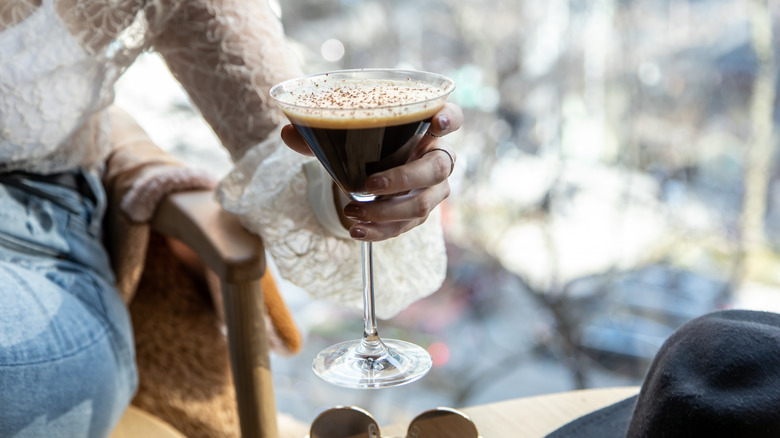What Actually Happens When You Mix Alcohol And Caffeine?
The coziness of coffee. The glamor of a cocktail.
With the espresso martini, you can have it all – so it's no surprise they've been taking metropolitan New York by storm in recent months. In fact, there are entire food blogs dedicated to finding the best espresso martinis in New York. It isn't a new concept: rum and coke is the entry-level bar-goer's ole' reliable order. Espresso martinis are basically the hot older sister of a classic Irish coffee.
It's easy to forget that alcohol and caffeine are both drugs. The ready availability of energy drinks, iced coffees, or a six-pack of seltzers makes them as commonplace beverages as water. Luckily, alcohol and caffeine are technical drugs with relatively low-risk margins – if consumed in moderation. But what happens when they're combined?
Before we weigh out the risks, let's consider the health benefits of caffeine – namely coffee and espresso, which are plant-based. Dietitian Andrea Dunn, RD, of the Cleveland Clinic, reports that coffee is a rich source of nutrients, including B vitamins, potassium, and riboflavin. The beans are also rich in antioxidants and lower the risk of Type 2 Diabetes. Coffee beans even protect against liver cirrhosis – which is great news if you like pairing espresso with your alcohol.
The risks
However, these health benefits don't come without drawbacks. According to the CDC, caffeine can make you feel less drunk than you actually are. The caffeine stimulant disguises the depressant effects of alcohol, resulting in a surprise inebriation that sneaks up seemingly out of nowhere. Health.gov states that the average espresso shot contains 64 milligrams of caffeine per fluid ounce, which, compared to the 8 mg/fl oz in a cup of coffee, is cause for slight concern. Because of this, caffeinated alcoholic beverage fans are six times more likely to binge drink — often unintentionally.
In addition to a sudden buzz, caffeine and alcohol can also lead to sudden dehydration. Medical News Today explains that alcohol acts as a diuretic, which increases urination in the body, leading to dehydration and the depletion of electrolytes. Since the Mayo Clinic reports that caffeine is also a mild diuretic, combining the two can lead to sudden symptoms of insufficient fluid intake –- even if you've been intaking fluids all night.
Is it safe?
The keyword here is moderation. Both alcohol and caffeine are commonplace in the American diet and safe if consumed responsibly (by consumers with no underlying health conditions). After dinner, an espresso martini is a thinking man's dessert, but what happens when moderation is thrown out the window?
The American Psychological Association recalls the nationwide ban of alcoholic energy drinks in 2010 sparked by the brand Four Loko. At its initial release in 2005, Four Loko was promoted as an energy drink, but it contains 12% alcohol by volume (most beers contain 4-6%). As Health.gov reports, caffeine does not change blood alcohol content levels and therefore does not reduce the risk of harm associated with drinking alcohol. However, following a series of incident reports in which people were harmed or behaved recklessly after drinking it, Four Loko has been sold without the addition of caffeine since 2010.
Espresso is a meticulously-roasted treat, and craft cocktails are assembled with the same amount of care -– and decadence. So treating espresso martinis and other unique cocktails like the glamorous desserts they are is a safe way to have your cake and eat it too.


